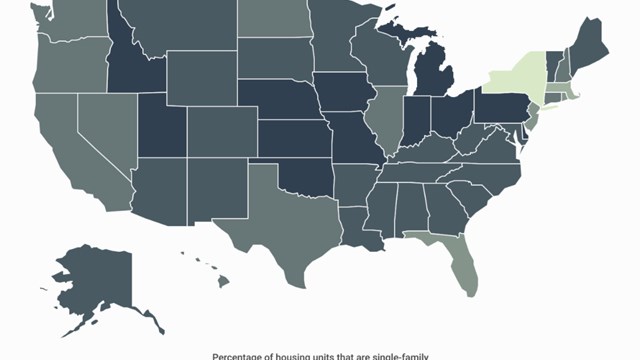There’s nothing worse than dealing with someone who has let their power go to their head, and when you’re talking about a co-op or condo board member who starts to act above everyone in the building, huge problems can arise.
Just because someone is on a board does not give them the right to operate under a different set of rules than the rest of the building has to follow. There should be no preferential treatment for parking spots, flouting pet rules, or fast-tracking of their own alteration projects.
A board member has a fiduciary duty to manage the property and financial well-being of the cooperative or condo for the benefit of the shareholders or unit owners.
“Fiduciary duties means they are supposed to put the interests of a shareholder above their personal interests,” says David L. Berkey, a partner at Gallet Dreyer & Berkey, LLP in Manhattan. “What we often do with our boards is to have them sign a code of conduct which repeats the fiduciary duty rules but also advises them that they are supposed to set the standard of behavior in the building.”
A fiduciary relationship exists when one party puts its trust in another party and grants to that second party a degree of influence and power. There is the understanding in a fiduciary relationship that the second party has a high level of accountability, including moral accountability, to the first party, and that the second party—the fiduciary—will put the best interests of the first party above their own.
“In the present context, the elected board members of co-ops and condos have a fiduciary duty to their buildings and to the people who elected them,” says Michael Berenson, president of AKAM Associates, Inc. “In turn, co-op shareholders and condo unit owners have a right to expect that their board members will put the best interests of the community above their own best interests and act in the utmost good faith.”
Breaking All The Rules
In any communal environment that is governed by shared rules, there is the expectation that everyone will abide by the rules for the greater good. When a member of the community breaks the rules, they must accept the consequences established by the community.
“Such punitive action serves to remind the transgressor of the relationship between actions and consequences, and informs the community that the system operates properly,” Berenson says. “That’s the basis of every civilization, and it works well in most cases. Things go out of whack when the very people vested with government and with meting corrective responses are the ones committing the infractions. When that happens, in a co-op or a nation, constituents start to believe that there are no standards, the communal structure breaks down, chaos can ensure, and a return to civilized cohabitation must become the first order of business.”
According to Andrew P. Brucker, Esq. of Manhattan-based law firm Schechter & Brucker, P.C., all rules must be consistently applied to all people or it will be a recipe for disaster.
“You can’t go after one person for something and let it slide with someone else, especially for a board member. The objective is fairness and equal treatment,” he says. “You have to do that or you will have a revolution on your hands. No way should a board member be in a more advantageous position or be treated better than the rest of the co-op.”
Some of the more common rules that a board member might break to benefit him or herself concern carpeting, keeping pets on leashes, storage rooms and other areas where people try to use their position to make things easier and less time consuming for themselves.
“Sometimes it’s mundane, silly things, such as moving on a day there shouldn’t be a move or telling the super to do something,” Brucker says.
He has also seen extreme situations arise such as having board members leave the building and put a relative in or allowing an illegal sublet.
“When a board member uses his/her board position for personal gain, or to purposefully bring gain or harm to another party in particular, that is a breach of fiduciary duty,” Berenson says. “A breach of fiduciary duty also occurs when a board member deliberately ignores or circumvents a house rule or other regulation that everyone else in the co-op or condo must follow.”
When a violation of the rules occurs, a board member is held accountable to the same penalties as any other resident in the building.
“They should get a warning letter the same way any shareholder in the building would. You send a letter advising they are in default of bylaws or rules and regulations and if you are going to enforce the penalties, there are procedures in place,” Berkey says. “The worst case scenario is if someone continues to violate rules in a co-op we evict them; in a condo, you get a court-ordered injunction to keep them from continuing the violation.”
For co-ops, the New York State Business Corporation Law (BCL) defines how a board of directors must conduct itself, and it applies to residential cooperative boards. For condos, directions on how boards or managers must behave are contained in the New York Condominium Act.
“Additionally, each building’s documents, its offering plan and bylaws, define the powers of the board and also the rights and obligations of all owners,” Berenson says. “Similarly, if the building has issued a set of house rules and residency guidelines that its corporate counsel has approved, there will probably be information there about what it means to serve on the board and how everyone in the building is supposed to behave.”
Board members should read the corporate documents in order to understand the rules and regulations they have been entrusted to uphold. Board members, and owners as well, also should always be able to rely on their management company and corporate counsel to guide them properly.
Personality Traits
In many of the new expensive condos that are going up, Brucker says that they are seeing many “Masters of the Universe” personalities pop up, which he explains are people who let the power of being a board member get to their head.
“They feel they are in charge of everything and that the rules don’t apply to them,” he says. “Others rationalize that they are not hurting anyone and they don’t think of the consequences.”
“People who break rules, whether they are board members or not, generally do so because they think they are gong to get away with it,” Berkey adds. “Or they think they are more important than the collective membership of the building.”
Then there are rare instances where people break the rules because they don’t read them or don’t truly understand them.
“I think what’s most important when dealing with board members is that they have to learn what their responsibilities are,” Berkey says. “In my firm, when there is a newly elected board or a significant number of new people elected to a board, we generally have a free meeting where we invite them to our office and go over roles and their fiduciary duties and that reinforces their obligation. That’s something I think every firm should do for their clients.”
Taking Action
Unfortunately, there is very little recourse a shareholder has to enforce rules against a board member who is breaking them. The same holds true with a unit owner in a condominium. As a matter of fact, the house rules provision says the board is not responsible for enforcing rules against other shareholders that might be breaking them.
“I would communicate with the managing agent and let them know a rule is being broken and let them take care of it,” Brucker says. “Report it to the president or manager or let the board know.”
One way to punish a board member who is trying to get away with something is to fire him from any office they may hold.
“You can’t kick them off the board, but an officer can be removed at any time,” Brucker says. “That’s something that can be done immediately and sends a great message.”
If you’re considering legal action against a board member, you could be talking about a lot of time and money for something that might not solve anything.
“The real concern flows to the board member not the association,” says attorney David Byrne, a shareholder and co-chair of Stark & Stark’s Community Associations Group. “Any board member engaging in fraud, self-dealing, unlawful discrimination, etc. would very possibly not be entitled to a defense and/or indemnification by that association vis-a-vis any lawsuit that arises out of it.”
There’s not much help in other government entities either.
“I find that the various government agencies are almost useless,” Byrne says. “Unfortunately, governments are not exactly in a position to hire more regulators and voters are not going to support tax increases to allow the hiring of workers to regulate condo and co-op boards. In the end, owners and shareholders should focus on the democratic process to address these issues.”
Rogue board members are awful for building morale, have a corrosive effect on residents’ confidence in their board, and can cause a myriad of problems. If you’re a board member, remember to stay fair and keep everything on an equal playing field.
Keith Loria is a freelance writer and a frequent contributor to The Cooperator.







4 Comments
Leave a Comment